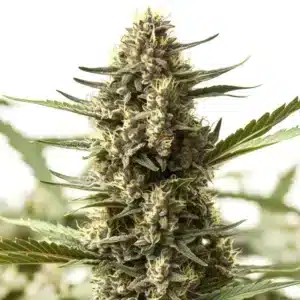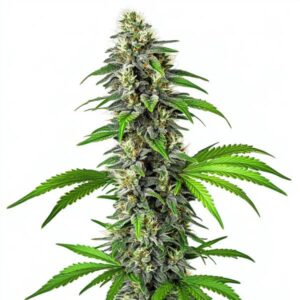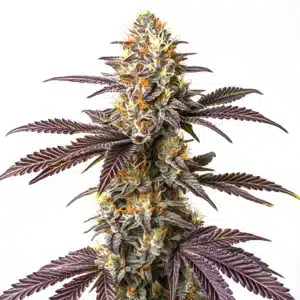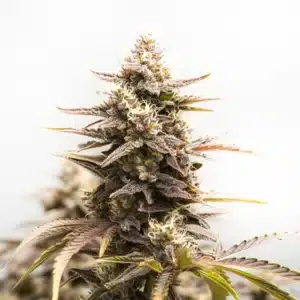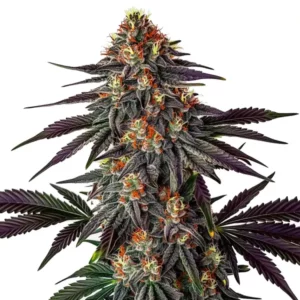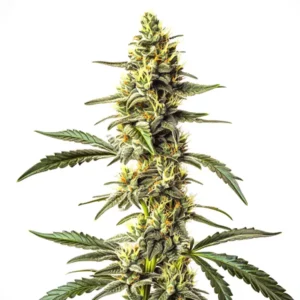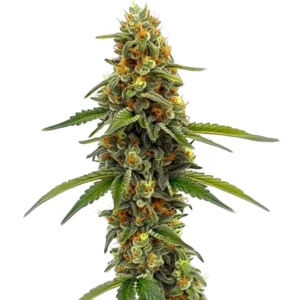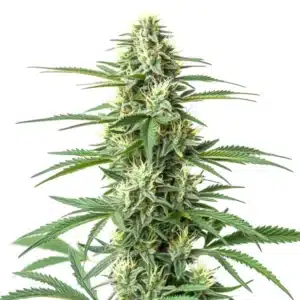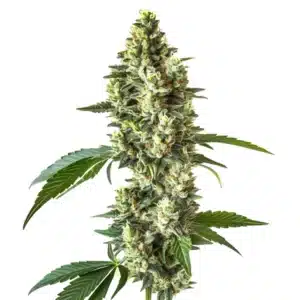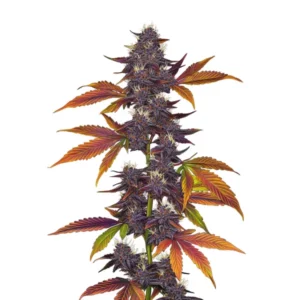
CBD for Sleep Apnea
Sleep apnea is a serious condition that affects a significant number of individuals around the globe. It results in interruptions in breathing throughout the night, leading to disturbed sleep and a variety of health complications. Among those affected, there’s a growing interest in exploring natural alternatives, including cannabidiol (CBD), to enhance sleep quality.
What is Sleep Apnea?
Sleep apnea occurs when breathing is disrupted during sleep. This disruption can happen repeatedly, sometimes hundreds of times a night. As a result, individuals often experience chronic fatigue, mood swings, and difficulties concentrating. There are two primary types of sleep apnea:
Recommended Strains
Scott OG Regular
|
|
THC | 16% - 19% (Medium) |
|
|
Type | Regular |
|
|
Yield | Medium |
|
|
Phenotype | 70% Indica / 30% Sativa |
CBD Girl Scout Cookies (1:1)
|
|
CBD | 15% (Medium) |
|
|
Type | CBD Feminized |
|
|
Yield | Medium |
|
|
Phenotype | 80% Indica / 20% Sativa |
- Obstructive Sleep Apnea (OSA): This is the most common type and occurs when the muscles in the throat overly relax, blocking airflow.
- Central Sleep Apnea: This less prevalent form occurs when the brain fails to send proper signals to the muscles responsible for breathing.
Both types can significantly diminish your quality of life. Daytime drowsiness, concentration issues, and even increased cardiovascular risks are common concerns. Traditional remedies often include specialized devices like CPAP machines, lifestyle modifications, and in some cases, surgical interventions. However, there is increasing curiosity about natural therapies, notably CBD.
Promos & Deals
CBD or Cannabidiol
CBD, or cannabidiol, is a naturally occurring compound found in the cannabis plant. Unlike its more famous counterpart, THC, CBD does not induce a “high,” making it appealing to many seeking therapeutic advantages without intoxication. Many users value CBD for its potential to relieve anxiety, enhance relaxation, and contribute to overall well-being.
Manufacturers typically derive CBD from either cannabis or hemp plants and convert it into various formats such as oils, capsules, or edibles. The method of consumption often depends on personal preference, the speed of onset desired, and specific effects sought after. With the growing awareness of CBD’s possible benefits, many are keen to learn about its potential to assist those dealing with sleep apnea.
Could CBD Help with Sleep Apnea?
Recent studies indicate that CBD may help manage some symptoms associated with sleep apnea. For instance, many users find that CBD’s calming effects can help reduce anxiety, which is beneficial for promoting restful sleep.
Research surrounding CBD and sleep disorders suggests it may enhance sleep onset and potentially increase total sleep duration. An increasing number of users report feeling more refreshed upon waking after using CBD, suggesting it might help improve the sleep quality of those with sleep apnea.

Potential Benefits of CBD for Sleep Apnea
There are several promising ways in which CBD may offer relief to those experiencing sleep apnea:
- Reducing Inflammation: CBD is known for its anti-inflammatory effects, which may alleviate symptoms associated with obstructive sleep apnea.
- Enhancing Relaxation: By promoting a calm mind and body, CBD can help individuals fall asleep faster and enjoy deeper sleep.
- Mitigating Anxiety: Many individuals with sleep disorders also struggle with anxiety, and CBD may provide a calming influence that eases racing thoughts before bedtime.
These potential benefits make CBD a fascinating option for those seeking relief from sleep apnea symptoms. While research is still ongoing, many user testimonials support its inclusion in a broader strategy for achieving better sleep.
How to Use CBD for Sleep Apnea
CBD offers various consumption methods, each with distinct advantages. Understanding how different methods impact the body can guide individuals in deciding the best approach to manage sleep apnea.
Forms of CBD
- Oils and Tinctures: Taken sublingually, these options allow for fast absorption into the bloodstream, providing quicker effects.
- Edibles: Gummies or capsules offer a discreet and convenient choice, although they may require more time to take effect.
- Vaporization: Vaping CBD oil can produce rapid results, which may be ideal for individuals seeking immediate relief.
The appropriate form of CBD often depends on your personal preferences and your aim for treatment. Starting with a lower dosage is advisable as you assess how your body responds before increasing to find the most effective level for your needs.
Choosing the Right CBD Strain
Various cannabis strains offer different effects, impacting how CBD interacts with your body. When selecting a CBD strain for sleep apnea, bear in mind several well-regarded options:
Popular CBD Strains
- ACDC: Renowned for its high CBD and low THC content, ACDC is popular for its relaxing effects without causing intoxication.
- Harlequin: This strain frequently showcases a balanced CBD to THC ratio, promoting a calming effect suitable for bedtime.
- Charlotte’s Web: Known for its medicinal properties, Charlotte’s Web is often chosen by those looking for relief from various health issues.
While each of these strains can be effective, experiences often vary from person to person. Experimenting with different strains may help you discover what works best for your unique sleep needs.

Things to Consider
Although CBD has shown promise for improving sleep apnea outcomes, several important considerations should be addressed:
- Consult with a healthcare professional before adding CBD to your routine, particularly if you are taking prescribed medications.
- Quality is crucial. Look for products from reputable brands that undergo third-party testing for quality assurance.
- Begin with a low dose and gradually increase until you identify the most effective dosage for your situation.
Regulations and Legalities
The legal status of CBD varies depending on your location. Understanding local laws governing CBD use is essential to ensure you remain compliant while seeking relief for sleep apnea.
Frequently Asked Questions
Is CBD safe for sleep apnea sufferers?
In general, CBD is regarded as safe for most individuals. However, it is vital to consult with a healthcare provider, particularly if you have existing health conditions or are taking medications.
Can CBD replace traditional sleep apnea treatments?
While CBD may help alleviate some symptoms, it should not replace established treatments such as CPAP therapy. Many find it beneficial to use CBD as a complementary strategy alongside conventional methods.
How long does it take for CBD to work?
The time it takes for CBD to take effect can vary based on the method of consumption. Oils usually take 15 minutes to an hour, while edibles may take up to two hours to feel the impact. Being attentive to your body’s response can aid in determining the efficacy.
Will CBD make me high?
No, CBD doesn’t produce a high sensation. Most CBD products contain minimal THC, which is the compound responsible for that effect. Choosing products with low THC ensures you won’t experience psychoactive effects.
How do I choose the right CBD product?
Selecting the right CBD product involves assessing your preferred method of consumption (e.g., oil, edible), how fast you want it to work, and the concentration of CBD. Always read labels thoroughly and choose reputable brands that offer clarity regarding their sourcing and production practices.
For those navigating the challenges of sleep apnea, incorporating CBD may pave the way for enhanced sleep experiences. While this natural alternative shows promise, it’s wise to approach it as part of a holistic plan that includes professional healthcare guidance.


